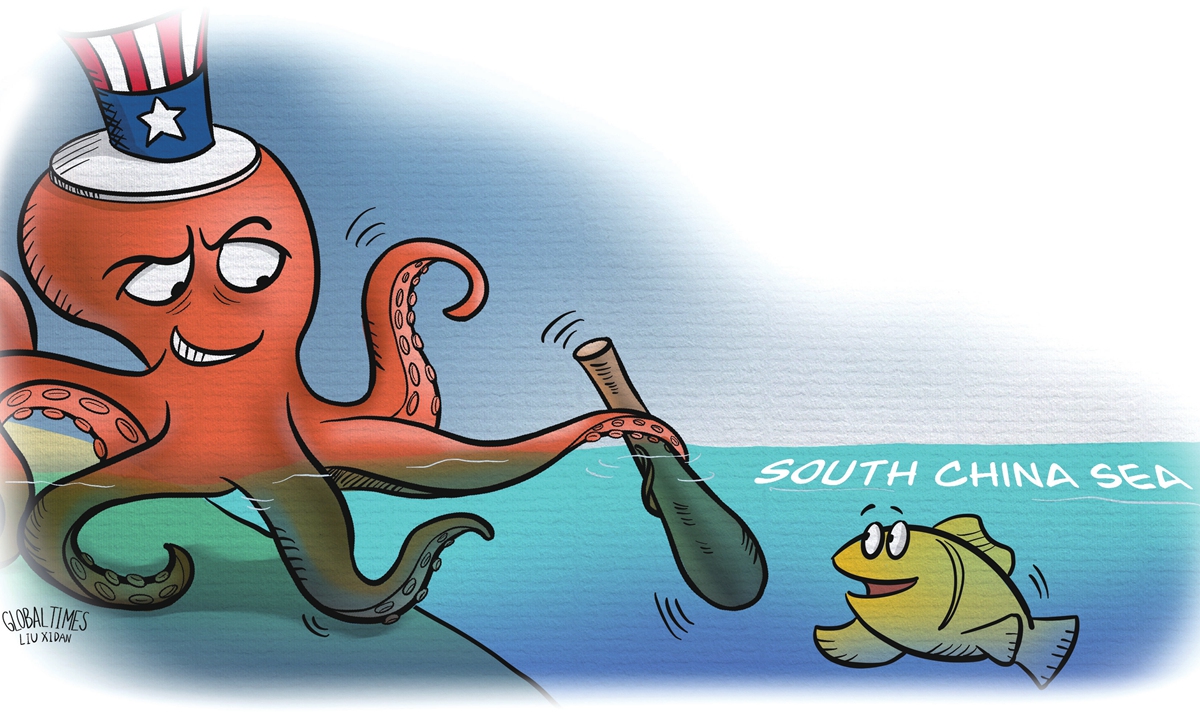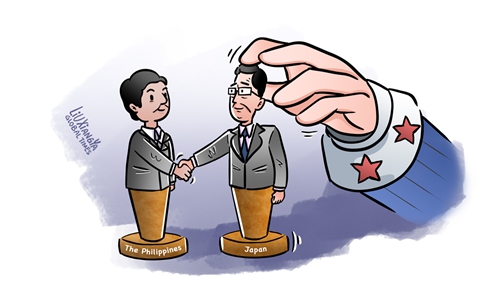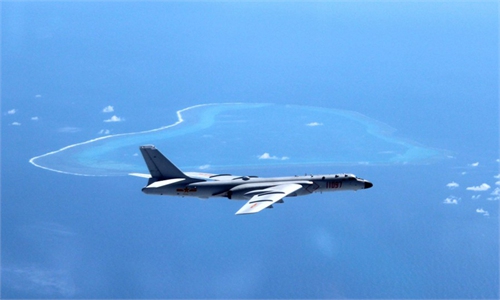
Illustration: Liu Xidan/GT
Philippines' Secretary of Transportation Jaime Bautista indicated that his country had given up on seeking financing from China for three major domestic rail projects on Monday. It is now turning to Japan, South Korea, and India for funding. This move is regarded by some people as a signal of the Philippines "breaking away" from the China-proposed Belt and Road Initiative.China-Philippines bilateral relations have appeared very pessimistic today. The Philippines' security and military cooperation with countries like the US and Japan constitutes substantial harm to China's national security. Moreover, Manila has continuously challenged China on maritime issues this year, and the measures the Ferdinand Romualdez Marcos Jr administration has taken on the South China Sea issue have been bold.
Since Marcos Jr took office, Chinese society had high hopes for the new administration to continue the trend of maintaining a friendly relationship with China. Today, however, the bilateral relations appear to be on the verge of hitting a new low.
There is no doubt that the South China Sea issue is the main factor affecting the development of China-Philippines relations and it has affected the bilateral ties since 2013. However, this is not the only factor.
Both under former president Gloria Macapagal Arroyo and former president Rodrigo Duterte, China-Philippines relations remained stable despite the emergence of the South China Sea dispute because the two countries chose to "freeze" the dispute and not allow it to affect the development of the bilateral relations.
However, the competition among major powers, especially the interference of the US in regional affairs, has made the efforts of China and the Philippines to stabilize bilateral relations more difficult.
With the adjustment of the US' policy in the Asia-Pacific region, particularly the escalation of its containment policy toward China, Washington has begun to consciously intervene in the South China Sea issue, using it to drive a wedge between China and other claimants. I believe that the upsurge of the South China Sea issue since 2010 is, to a large extent, related to the US' interference.
As a traditional ally of the US in the Asia-Pacific region, the Philippines has naturally become the target of the US' "seduction." But the Philippine society needs to ponder one question: What does the Philippines gain from following the US, strengthening military and security cooperation with powers outside the region, and inflaming the maritime disputes with China? If Manila has enough strategic understanding of Beijing, it should understand that such a hard-line policy toward China is unlikely to yield any gains for the Philippines. Instead, it will likely lead to destabilizing bilateral relations and regional instability and even undermining its economic ties with China. Moreover, for a global power like the US, any commitment to the Philippines has only one purpose: to serve US national interests and global strategy.
The Philippines is not without other options. For example, under former president Duterte, the Philippines chose to de-escalate South China Sea dispute with China, thus preserving the stability of the bilateral ties free from the US' influence.
It is reported that President Marcos Jr is planning to visit the US Indo-Pacific Command headquarters in the state of Hawaii after attending next week's Asia Pacific Economic Cooperation leaders' meeting in San Francisco. And it is speculated that the two sides will discuss the conflicts in the South China Sea.
Marcos Jr once mentioned that relations between China and the Philippines should not be defined by maritime issues. He also said that both sides may further enhance communication in this regard and that the Philippines looks forward to working with China to unleash potentials and expand cooperation in many areas in an effort to build a more robust and strong bilateral relationship. This being the case, why should the Philippines wantonly magnify the South China Sea dispute, or even gradually cut itself off from China? For a country like the Philippines, actively intervening in the competition among great powers and intensifying the security conflicts with a major power while disregarding the needs of domestic economic development is no different from throwing itself into the fire.
The author is the director of the Center for Philippine Studies at Jinan University, Guangdong, China. opinion@globaltimes.com.cn



